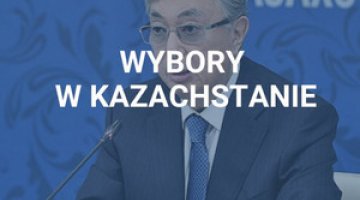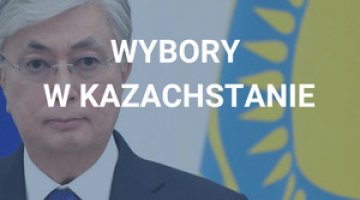Raw material partnership between Germany and Kazakhstan
Germany and Kazakhstan entered into a partnership agreement “in the area of raw materials, industry and technology” on 8 February in Berlin. The agreement will enable German firms to explore and produce inter alia rare earth metals in Kazakhstan. In exchange, Germany is to support the construction of modern industry and the transfer of new technologies to Kazakhstan. Pursuant to the agreement, both countries are ready to co-operate also in the areas of professional training and infrastructure development. Over 50 economic contracts, the estimated value of which is approximately 3 billion euros, were signed during this visit.
Commentary
-
The raw material partnership agreement with Kazakhstan is an effect of the strategy adopted by the German government in October 2010, which envisages supporting German firms in gaining access to raw materials. This strategy is aimed at improving access to new sources of raw materials necessary for the operation of the German economy. The agreement with Kazakhstan is the second deal of this kind (a similar one was signed with Mongolia) in the area of raw material policy.
-
Representatives of German industry did not conceal their satisfaction with this deal since approximately 95% of the rare earth metals used globally (necessary for example in the construction of ‘green’ energy technologies, which are of key significance for the success of the new German energy strategy) originate from China, which is restricting their exports. The agreement with Kazakhstan offers a chance to reduce (at least partly) Germany’s dependence on China in this area. In April 2011, Kazakhstan also for the first time became the third largest exporter of crude oil to Germany, and trade turnovers between the two countries last year grew by 20%, reaching 6.3 billion euros. The agreement will allow this trend to continue owing to the declared facilitations for firms.
-
The signing of this agreement and Nazarbayev’s visit are the crowning effect of the many years of co-operation between Berlin and Astana based on strong economic bonds (German technologies in exchange for Kazakh raw materials) and on political support offered by Germany in issues essential for Kazakhstan (for example, Berlin backed Astana in its efforts to be granted the OSCE presidency in 2010). Issues of democracy and the violation of human rights by the Kazakh authorities were in fact not mentioned by the hosts. Chancellor Angela Merkel only stated that she had been talking to Nazarbayev about the respect of human rights and the events in Zhanaozen, during which fifteen people were killed in clashes between law enforcement troops and employees of the oil sector on strike in December 2011. This approach from Berlin sets a certain model of relations with Astana , according to which economic co-operation will be developed and a blind eye will be turned to the political sphere. This model is very likely to be copied by other EU member states.
- In turn, Nazarbayev used this visit to emphasise that his country has the right to choose its own path towards democratisation, and this was reflected in his speech at the forum of the German Association for Foreign Policy: “democracy is at the end of our road, not at the beginning.” This is also proof of Kazakhstan’s increasing assertiveness in responding to issues related to democracy and human rights raised by the EU.




